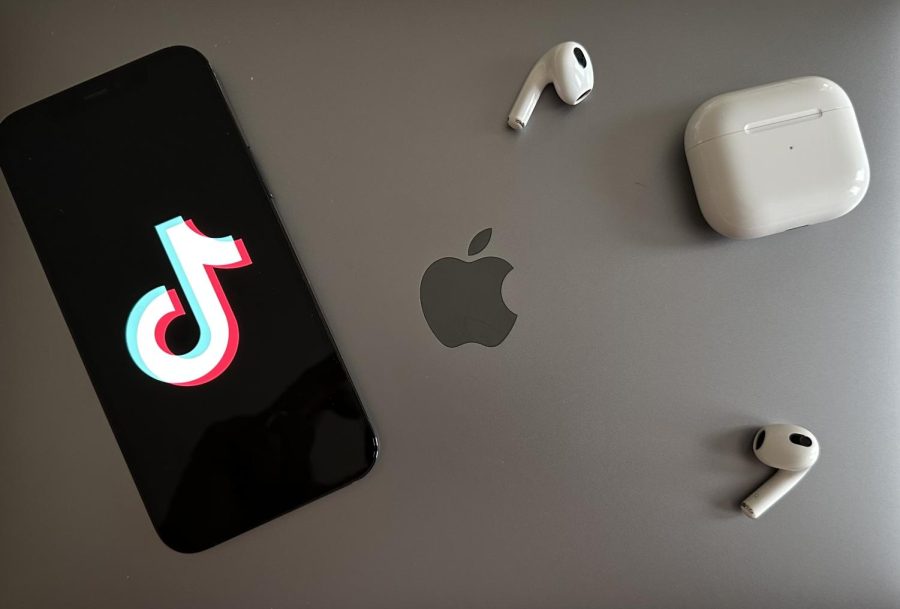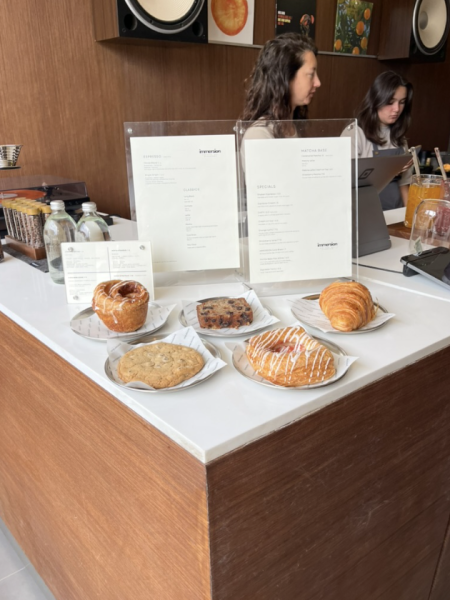TikTok Trepidation
Why concerns about TikTok are resulting in government action and, potentially, bans
With concerns about privacy violations on the rise, some lawmakers are calling to limit — or even ban — TikTok on government devices.
TikTok has been controversial from the start. It has been accused of false advertising, being addictive, promoting misinformation, and damaging mental health. But now, TikTok is coming under fire for another, more pressing reason: national security concerns.
Over two years after the Trump administration attempted to ban TikTok in the United States, the popular short-form video app began facing public scrutiny once again. Concerned about the privacy of TikTok’s U.S. users, lawmakers have been putting forth legislation to ban the app on government-issued electronic devices. This has resulted in increased regulation and has opened the door for nationwide bans, each with varying degrees of success.
Over the past few weeks, close to 30 states — including Mississippi, Indiana, Louisiana, North Carolina, South Dakota, and Wisconsin — have either restricted or outright prohibited public officials from accessing TikTok. Bans have also been implemented on devices managed by the U.S. House of Representatives. According to a notice provided to CNN by the Office of the Chief Administrative Officer, “users who install the short-form video app on any House mobile device will be asked to remove the software.”
This effort has been spearheaded by primarily Republican-led states, whose governors have expressed worries about users’ personal information being provided to the Chinese government. Although there is no evidence that this has occurred, the national security laws in China could allow the government to pressure Bytedance, a private, global company that owns TikTok, to disclose private information.
But beyond being concerned about the privacy of U.S. citizens, some politicians think this data could be used for intelligence operations or to disperse misinformation, though they have been vague about what specifically this could entail. One such politician is former governor Pete Ricketts, who announced in 2020 that Nebraska would ban TikTok on state devices “to maintain the security of data owned by the state of Nebraska and to safeguard against the intrusive cyber activities.”
As for the federal government, the Committee on Foreign Investment in the United States (CFIUS), a panel that reviews foreign investment deals for national security risks, has been investigating TikTok for the past couple of years, though this has not resulted in any concrete action.
But TikTok executives don’t see these measures in quite the same light as some politicians do. Spokesperson Hilary McQuaide responded to the bans, saying that “it’s unfortunate that the many state agencies, offices, and universities on TikTok in those states will no longer be able to use it to build communities and connect with constituents,” expressing disappointment that “so many states are jumping on the bandwagon to enact policies based on unfounded, politically charged falsehoods about TikTok.”
As mentioned by McQuaide, at least 20 public universities — including Auburn University, University of Oklahoma, University of Texas-Austin, and Texas A&M — have also followed suit and banned TikTok from their school WiFi.
But while some schools are banning TikTok, it does not seem that Bishop’s will be among them. The universities restricting TikTok on school WiFi are primarily doing so to comply with new state laws, explained Interim Director of Marketing and Communications Ms. Cathy Morrison, but “as a private institution we [Bishop’s] wouldn’t be banning it for those kinds of reasons.” And although it won’t be banned, Ms. Morrison still wants to encourage “everyone to be responsible, compassionate, and kind” on the app.
While present action does not seem outwardly disruptive to everyday users of the app, CNN acknowledged that “these recent announcements could nonetheless add to political pressure for tougher action at the federal level, which could in turn be more disruptive to users.”
But a nationwide ban on TikTok, as some lawmakers have suggested, might be easier said than done. As CNN noted, “it’s part of our culture now.” Small business owners can promote their work, politicians are able to campaign on social media, and everyone with access to a mobile device has endless entertainment at their disposal; the question is, does it come with a cost?

Lucy is a senior and Lead Content Editor for The Tower. This is her fourth year on the staff and second on the editorial team, and she can’t wait to...







